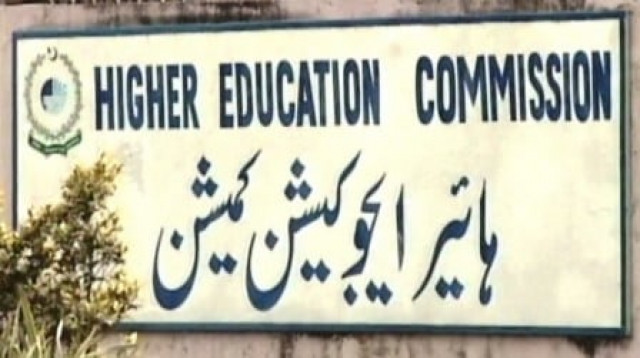Govt developing first-ever higher education database
PHEC chairperson says decision to develop student-teacher database will be helpful

PHOTO: FILE
The initiative has been taken by the Punjab Higher Education Commission (PHEC) and is expected to be completed within the next year. The provincial government has already made the database of public schools available in the province and a similar web-based information system is planned for higher education institutions.
Speaking about the initiative, PHEC Chairperson Dr Muhammad Nizamuddin said the decision to develop the student-teacher database would help policymakers, teachers and students alike.
“The current information available with regulatory bodies is neither complete nor authentic. The updated data gathered by the Higher Education Commission of Pakistan (HEC) is not publically available and policymakers have to rely on old information.”
He was of the view that effective policies could not be devised in an information vacuum. “PHEC has realised that in order to develop a workable plan for up-gradation of the higher education sector, an authentic and reliable database is required,” he added.
On the project’s timeline, Dr Nizam said, “PHEC has established a desk for review and it will start its work on this project from the next month.” In this regard, a research cell, information management and systems development cells have been established in PHEC, he added. “Both departments will work together for information gathering, system development, research and policy development.”
PHEC Director General Dr Shahid Soroya told The Express Tribune that the commission was dealing with 32 public and 24 private sector universities in Punjab where millions of students were enrolled. He said that the problem was that policymakers faced the challenge of making rules and regulations based on this data.
“Secondly, there is the fact that the faculty members and students change institutions, drop out or travel abroad for studies; making the whole sector very capricious,” he added.
Dr Soroya said that the problem of lack of information was compounded by the fact that public universities did not make their information public. As a result, it was a challenge for policymakers to figure out what to invest on faculty development and students. “For this purpose, a database is required,” he added. He said that the under-development database would include up-to-date information of every aspect of higher education system in the province.
The federal HEC recognises a total of 187 degree-awarding institutions in the country, out of which 60 were in Punjab. In another list, the HEC issued names of illegal universities and campuses. The list of illegal varsities included 165 institutions out of which 102 were found to be in Punjab.
Published in The Express Tribune, December 22nd, 2017.



















COMMENTS
Comments are moderated and generally will be posted if they are on-topic and not abusive.
For more information, please see our Comments FAQ